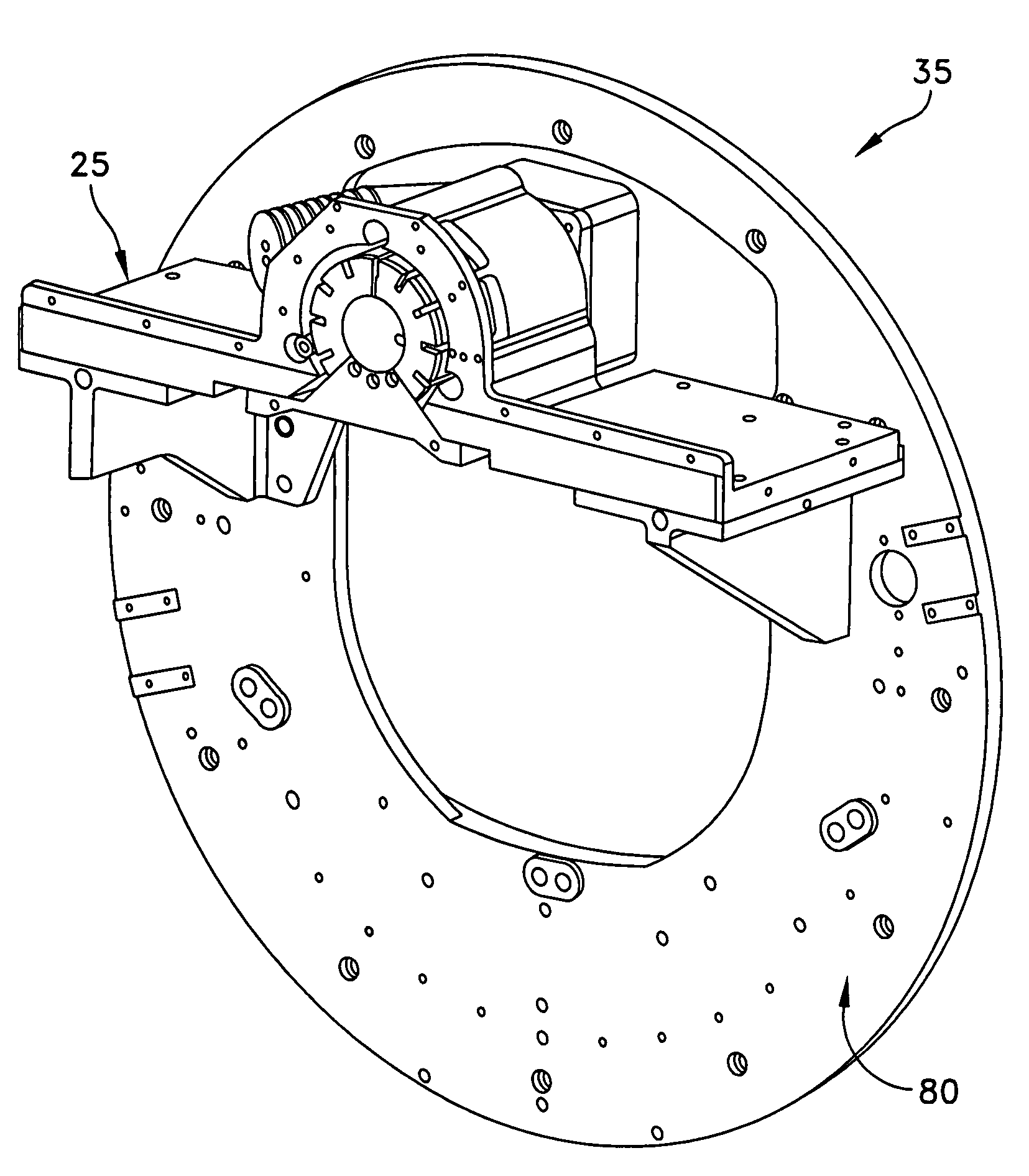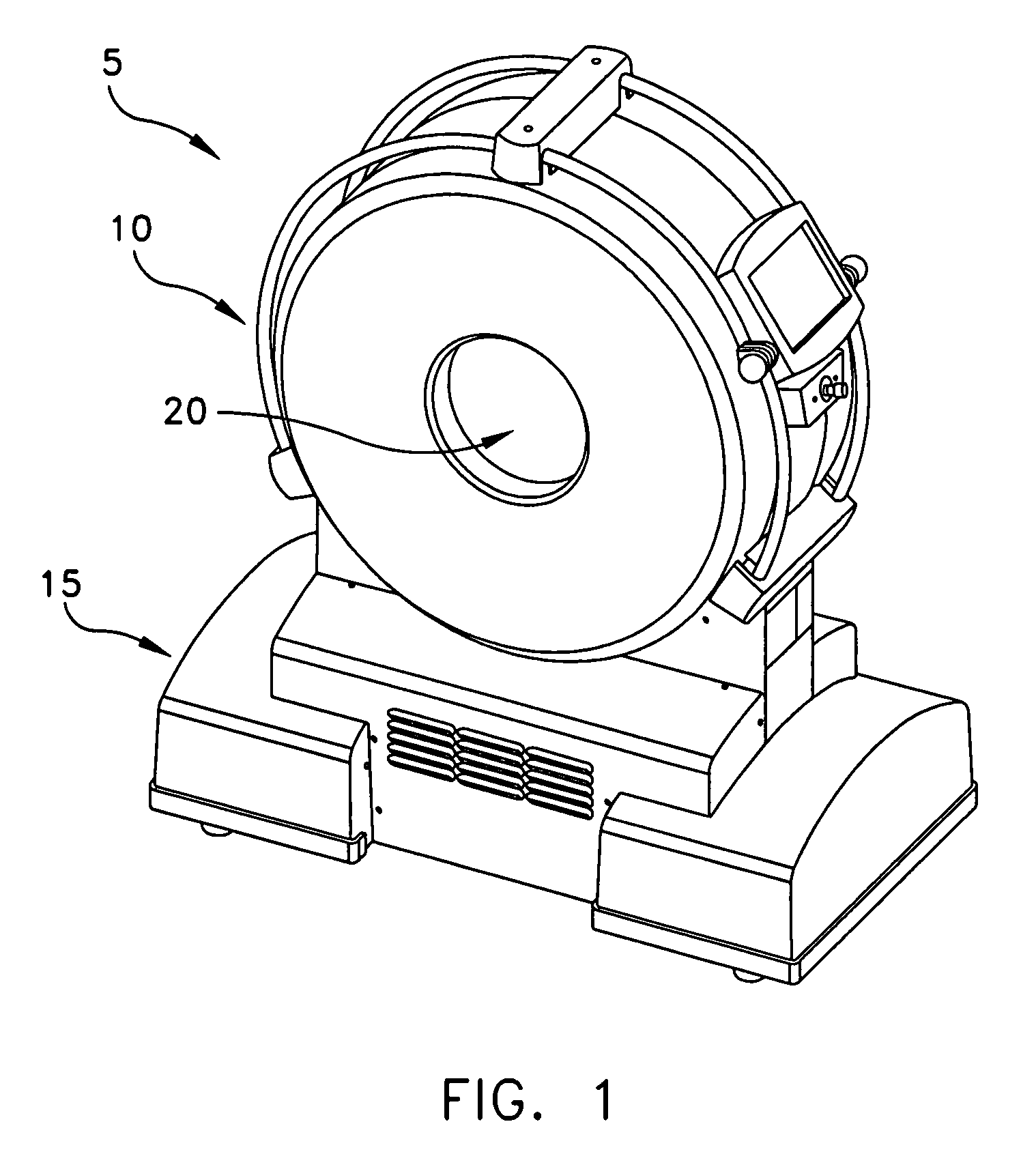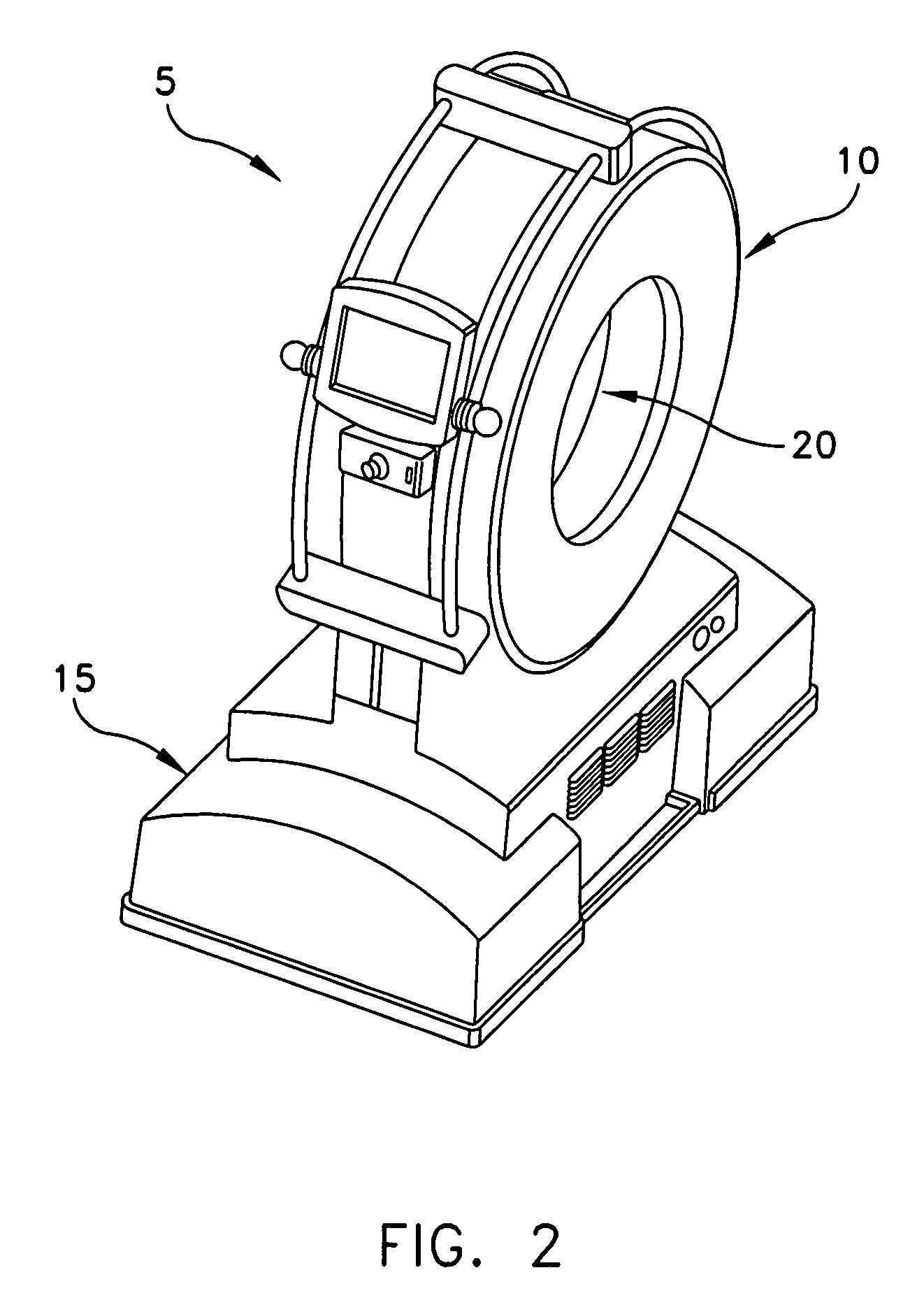Computerized tomography (CT) imaging system with monoblock X-ray tube assembly
a computerized tomography and monoblock technology, applied in the field of anatomical imaging systems, can solve the problems of tissue oxygen deprivation, tissue damage, and the effectiveness of a particular treatment may be time-sensitive, and achieve the effect of facilitating a reduction in the size, weight and cost of the ct scanner
- Summary
- Abstract
- Description
- Claims
- Application Information
AI Technical Summary
Benefits of technology
Problems solved by technology
Method used
Image
Examples
Embodiment Construction
CT Machine 5 In General
[0055]Looking first at FIGS. 1 and 2, there is shown a novel CT machine 5 formed in accordance with the present invention. CT machine 5 generally comprises a torus 10 which is supported by a base 15. A center opening 20 is formed in torus 10. Center opening 20 receives the patient anatomy which is to be scanned, i.e., the head of the patient when CT machine 5 is to be used in stroke applications.
[0056]Looking next at FIG. 3, torus 10 generally comprises a X-ray tube assembly 25, an X-ray detector assembly 30, and a rotating drum assembly 35. X-ray tube assembly 25 and X-ray detector assembly 30 are mounted to the rotating drum assembly 35 in diametrically-opposing relation, such that the X-ray beam 40 (generated by X-ray tube assembly 25 and detected by X-ray detector assembly 30) is passed through the patient anatomy disposed in center opening 20. Furthermore, since X-ray tube assembly 25 and X-ray detector assembly 30 are mounted on the rotating drum assembl...
PUM
 Login to View More
Login to View More Abstract
Description
Claims
Application Information
 Login to View More
Login to View More - R&D
- Intellectual Property
- Life Sciences
- Materials
- Tech Scout
- Unparalleled Data Quality
- Higher Quality Content
- 60% Fewer Hallucinations
Browse by: Latest US Patents, China's latest patents, Technical Efficacy Thesaurus, Application Domain, Technology Topic, Popular Technical Reports.
© 2025 PatSnap. All rights reserved.Legal|Privacy policy|Modern Slavery Act Transparency Statement|Sitemap|About US| Contact US: help@patsnap.com



